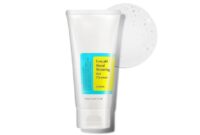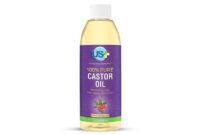Are you tired of dealing with the redness, bumps, and irritation that come with rosacea? It’s time to take control of your skin and find the best product for managing your symptoms.
Rosacea is a chronic skin condition that affects millions of people worldwide, and while it can be frustrating to deal with, there are effective treatments available.
First, let’s talk about what causes rosacea. While the exact cause is unknown, certain triggers can worsen symptoms, such as sun exposure, stress, and certain foods or drinks. Rosacea is characterized by redness, bumps, and pimple-like bumps on the face, and it can be difficult to manage without proper treatment.
Luckily, there are a variety of topical treatments, moisturizers, and serums available to help reduce inflammation and soothe the skin. In this article, we’ll explore the best products for managing rosacea and provide tips for making lifestyle changes to help improve your skin’s health.
Understanding Rosacea: Causes and Symptoms
If you’re one of the millions suffering from rosacea, it’s important to understand the causes and symptoms so you can find the best product to manage your condition.
Rosacea is a chronic and inflammatory skin condition that affects the face. It causes redness, flushing, and pimple-like bumps. Although the exact cause is unknown, some triggers can worsen the condition. These triggers include spicy foods, alcohol, stress, and sunlight exposure.
Medical treatments include topical creams and gels containing antibiotics, anti-inflammatories, and other medications. These treatments can help reduce redness, inflammation, and other symptoms associated with rosacea.
In addition to medical treatments, natural remedies and lifestyle changes can help manage the condition. These include avoiding triggers, using gentle skincare products, and wearing sunscreen.
By understanding the causes and symptoms of rosacea and seeking appropriate medical treatment, you can find the best product to manage your condition and improve your skin health.
Topical Treatments for Rosacea: An Overview
You may find relief from your rosacea symptoms by using topical treatments, which are designed to reduce inflammation and redness on the skin. There are many options available, from natural remedies to prescription options.
Some natural remedies include tea tree oil, aloe vera, and chamomile. These can be applied directly to the affected areas to soothe and calm the skin.
Prescription options include topical antibiotics, such as metronidazole and azelaic acid, which can help reduce inflammation and redness. Other prescription options include topical corticosteroids, which can help reduce swelling and inflammation, and topical retinoids, which can help improve the appearance of the skin by reducing the size of pores and smoothing out fine lines and wrinkles.
It’s important to talk to your doctor about which treatment options are best for you, as they can help you determine the most effective treatment plan for your individual needs.
Best Moisturizers for Rosacea-Prone Skin
Looking for a moisturizer that’s gentle and won’t aggravate your rosacea? Check out these top-rated options for soothing and hydrating rosacea-prone skin.
When selecting a moisturizer for sensitive skin, it’s important to look for non-irritating ingredients. Ingredients like fragrances, alcohol, and harsh chemicals can trigger redness and irritation in those with rosacea.
One great option is CeraVe Facial Moisturizing Lotion PM. This moisturizer is specially formulated with hyaluronic acid and ceramides to hydrate and restore the skin’s natural barrier. It’s also free of fragrance and other common irritants, making it a great choice for those with sensitive skin.
Another top pick is La Roche-Posay Toleriane Double Repair Face Moisturizer. This moisturizer is enriched with prebiotic thermal water and ceramides to soothe and protect the skin. It’s also oil-free and non-comedogenic, making it a great option for those with oily or acne-prone skin.
Serums and Toners for Reducing Inflammation
To reduce inflammation in your rosacea-prone skin, incorporating serums and toners into your skincare routine can be a game-changer. These hydrating solutions are packed with active ingredients that can help soothe and calm your skin.
Look for products that contain ingredients such as niacinamide, which has anti-inflammatory properties, or green tea extract, which can reduce redness and irritation.
When it comes to toners, opt for gentle formulas that won’t strip your skin of its natural oils. Look for toners that contain rose water or aloe vera, which are known for their hydrating and soothing properties. Avoid toners that contain alcohol, as this can dry out your skin and exacerbate rosacea symptoms.
By incorporating serums and toners into your skincare routine, you can help reduce inflammation while keeping your skin hydrated and healthy.
Lifestyle Changes for Managing Rosacea Symptoms
Making simple lifestyle changes can have a significant impact on managing the symptoms of rosacea. One important modification you can make is to your diet. Avoiding trigger foods such as spicy or acidic foods, alcohol, and caffeine can help reduce inflammation and redness in the skin. Incorporating anti-inflammatory foods such as leafy greens, fatty fish, and berries can also be beneficial for managing rosacea symptoms.
In addition to diet modifications, stress reduction can also play a crucial role in managing rosacea. Stress has been known to trigger flare-ups and exacerbate symptoms. Incorporating stress-reducing activities such as meditation, yoga, or regular exercise can help manage stress levels and improve overall well-being. Additionally, getting enough sleep and maintaining a consistent skincare routine can also aid in managing rosacea symptoms.
By making these simple lifestyle changes, you can improve the overall health of your skin and manage the symptoms of rosacea.
Frequently Asked Questions
Are there any natural remedies for treating rosacea?
If you’re looking for natural remedies for treating rosacea, herbal remedies and DIY treatments may be worth considering. Herbal remedies such as chamomile and green tea have anti-inflammatory properties that can help reduce redness and irritation. Applying aloe vera gel to the affected area may also help soothe and calm the skin.
DIY treatments such as creating a gentle face mask with ingredients like honey and oatmeal can provide gentle exfoliation and hydration without irritating the skin further. It’s important to keep in mind that natural remedies may not work for everyone, and it’s always best to consult with a healthcare professional before trying any new treatment.
Can certain foods aggravate rosacea symptoms?
If you’re struggling with rosacea, you may be wondering if certain foods can worsen your symptoms. The answer is yes, food triggers can play a significant role in exacerbating rosacea.
Common culprits include spicy foods, alcohol, and caffeine. It’s important to pay attention to your body and identify which foods seem to cause flare-ups.
In addition to making dietary changes, adopting certain lifestyle changes can also help manage rosacea. This may include avoiding extreme temperatures, using gentle skincare products, and staying hydrated.
While there’s no one-size-fits-all solution for managing rosacea, being mindful of food triggers and making lifestyle changes can go a long way in reducing symptoms.
Are there any makeup products that are safe to use on rosacea-prone skin?
As the saying goes, "less is more"when it comes to makeup options for rosacea-prone skin. It’s important to remember that your skincare routine plays a crucial role in managing your rosacea symptoms, so make sure to use gentle and non-irritating products.
When it comes to makeup, look for products labeled as "hypoallergenic,""non-comedogenic,"and "fragrance-free."Mineral-based makeup can also be a good option as they often have natural ingredients and are less likely to cause irritation. Additionally, opt for lighter coverage and avoid heavy or oil-based products.
Remember to always patch test new products before applying them to your entire face. By following these tips, you can find safe and effective makeup options for your rosacea-prone skin.
Can stress trigger rosacea flare-ups?
Stress can indeed trigger rosacea flare-ups, so managing stress levels is an important part of managing the condition. Relaxation techniques, such as deep breathing exercises, meditation, or yoga, can help to reduce stress and keep flare-ups at bay.
It’s also important to try to identify and avoid other triggers that can exacerbate rosacea, such as certain foods, alcohol, and extreme temperatures. While there are many skincare products available that can help to soothe and protect rosacea-prone skin, managing stress is a crucial part of keeping flare-ups under control.
By incorporating relaxation techniques into your daily routine and being mindful of potential triggers, you can help to keep your skin looking and feeling its best.
Is it safe to use laser or light therapy for treating rosacea?
If you’re considering using laser or light therapy for your rosacea, it’s important to weigh the risks and benefits. Laser therapy risks can include temporary redness, swelling, and even scarring, while light therapy is generally considered safe with few side effects.
However, the effectiveness of light therapy for rosacea can vary, and it may take multiple sessions to see results. It’s also important to note that these treatments can be expensive and may not be covered by insurance.
Ultimately, it’s best to consult with a dermatologist to determine if laser or light therapy is right for you and to discuss other potential treatment options.
Conclusion
Congratulations! You’re now equipped with the knowledge of the best product for rosacea. By understanding the causes and symptoms of rosacea, you can take the necessary steps to take care of your skin.
Topical treatments such as creams and gels can help reduce inflammation and redness. In addition to topical treatments, incorporating lifestyle changes such as avoiding triggers and practicing stress reduction techniques can also help manage rosacea symptoms.
Remember to always consult with a dermatologist for personalized recommendations. With the right products and care, you can keep your rosacea-prone skin healthy and glowing.


